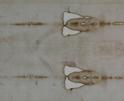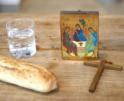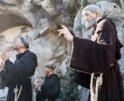
Spirituality
My advice then to others about summer reading is, this year, to choose books which impress upon us what true greatness is and which impart a certain humility, but optimism, in seeking it ourselves, through building.

Pakaluk
It is easy to tear down, hard to build. Cathedrals built over centuries were destroyed in days during the Reformation. A man nurtured lovingly from birth, educated, instructed in sports, formed in art and music, can be struck down in a second by a shell or bullet. To educate and raise for over 20 years is difficult. To shoot down lifeless -- it's the easiest thing in the world.
Decapitate a lifeless statue? Easy. Be a Columbus or anything even remotely approaching a Columbus? -- not so easy. Criticize George Washington for his slaves? Easy. Be someone who others, on even one occasion, might wish to compare to George Washington? Not so easy.
I see everywhere the destruction of rioting, iconoclasm, debunking, discrediting, and "canceling." I see nowhere edification.
My advice then to others about summer reading is, this year, to choose books which impress upon us what true greatness is and which impart a certain humility, but optimism, in seeking it ourselves, through building.
Almost anything by John Henry Newman, G.K. Chesterton, or C.S. Lewis is great. As starting points, consider Newman's "Apologia," Chesterton's "Orthodoxy," and Lewis' "Miracles."
But if one thinks of current issues, in connection with the founding of our country, so disputed now, one might consider Robert Reilly's recent "America on Trial: A Defense of the Founding" (Ignatius). As Peter Kreeft describes it, the book is "a defense of the principles of natural law, morality, and natural religion -- i.e., reason and faith -- as the foundation of American policy from the beginning and a historical 'big picture' of their classical, medieval, and modern origins. The argument is unanswerable, the documentation massive, and the issue prophetic in import." Every association must at times go back to its roots to recover again the sense of the best way forward. Americans live now in such a time.
Our nation is undergoing a collective examination of conscience about the legacy of slavery. "The Narrative of the Life of Frederick Douglass," available in Penguin's convenient "Portable Frederick Douglass," will introduce you to, surely, one of the great geniuses of any age. As a 12-year-old slave boy, he taught himself letters. Working at a shipyard, he watched the carpenters closely. Pieces intended for the larboard side of a ship would be marked with 'L.' For the starboard side, 'S.' For forward or aft, 'F' or 'A'. Thus he learned four letters, and he would practice writing them. "After that," he recounts, "when I met with any boy who I knew could write, I would tell him I could write as well as he. The next word would be, 'I don't believe you. Let me see you try it.' I would then make the letters which I had been so fortunate as to learn, and ask him to beat that. In this way I got a good many lessons in writing."
St. Junipero Serra is under intense reexamination these days. The best biography of Serra, in two volumes by Maynard Geiger, "The Life and Times of Junipero Serra: Or the Man Who Never Turned Back," is unfortunately not easy to purchase at a reasonable price. You should look for it at your library or through interlibrary loan. The on-demand printed book is available on Amazon for $68 -- not unreasonable for 1,000 pages.
St. Pope John Paul II, in his homily for the Mass of Beatification of Serra in 1988, remarked on St. Junipero's "missionary commitment that required patience, perseverance, and humility, as well as foresight and courage." Serra was well aware of the heroic virtues of the indigenous peoples, the sainted pope said, "and sought to promote their authentic human development on the basis of their new faith as people created and redeemed by God."
Pope Francis, in canonizing Serra in 2015 at the National Shrine of the Immaculate Conception in Washington, D.C., commented on our debt to missionaries like St. Junipero: "We are heirs to the bold missionary spirit of so many men and women who preferred not to be 'shut up within structures which give us a false sense of security... within habits which make us feel safe, while at our door people are starving' ("Evangelii Gaudium," 49). We are indebted to a tradition, a chain of witnesses who have made it possible for the good news of the Gospel to be, in every generation, both 'good' and 'news.'" Everyone who today is grateful for being a Christian is the spiritual child of someone like St. Junipero Serra.
Finally, the lockdown, social turmoil, and the incessant strum of the internet make it more important than ever for us to cultivate interior life, to live in the presence of God. After all, this is "the one thing necessary" (Lk 10:41-42). Maybe carry in your back pocket a copy of "The Way" by St. Josemaria Escriva. It's now an old spiritual classic, yet today it is as fresh and youthful as ever. Consult this book and turn to God when you're tempted to distract yourself on your phone.
And then, if you are looking for a big novel to lose yourself in, two of my favorites from recent years are Dumas, "The Count of Monte Cristo" (about 1,200 pages unabridged), and "The Island of the World," by Michael O'Brien (839 pages). But be forewarned that they will absorb you in very different ways.
- MICHAEL PAKALUK, AN ARISTOTLE SCHOLAR AND ORDINARIUS OF THE PONTIFICAL ACADEMY OF ST. THOMAS AQUINAS, IS A PROFESSOR IN THE BUSCH SCHOOL OF BUSINESS AT THE CATHOLIC UNIVERSITY OF AMERICA. HE LIVES IN HYATTSVILLE, MD, WITH HIS WIFE CATHERINE, ALSO A PROFESSOR AT THE BUSCH SCHOOL, AND THEIR EIGHT CHILDREN. HIS LATEST BOOK, ON THE GOSPEL OF MARK, IS "THE MEMOIRS OF ST PETER." HIS NEXT BOOK, ''MARY'S VOICE IN THE GOSPEL OF JOHN," IS FORTHCOMING FROM REGNERY GATEWAY.
Recent articles in the Spirituality section
-
He saw the cloths and believedBishop Robert Barron
-
God's instrument for viewing the crucifixionMichael Pakaluk
-
QuinquagesimaMichael Pakaluk
-
Pro-life Christians: Now is the time to shout from the rooftopsBishop Robert Barron
-
Seeking an indulgence as an act of faithMichael Pakaluk


















